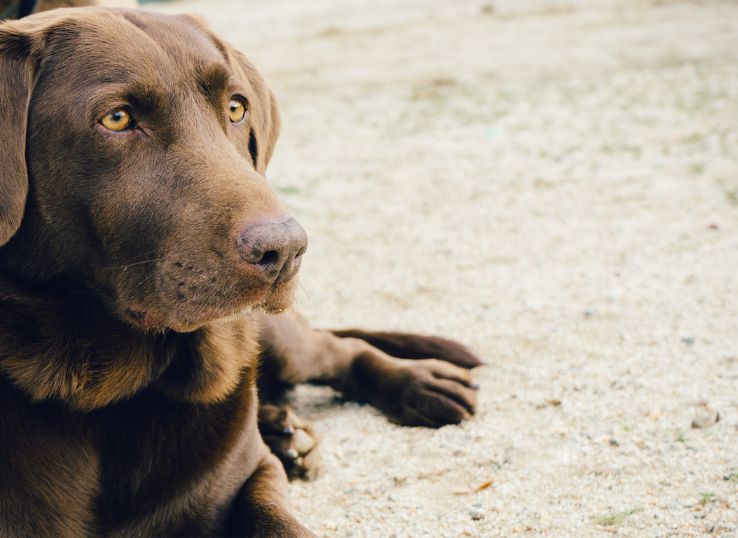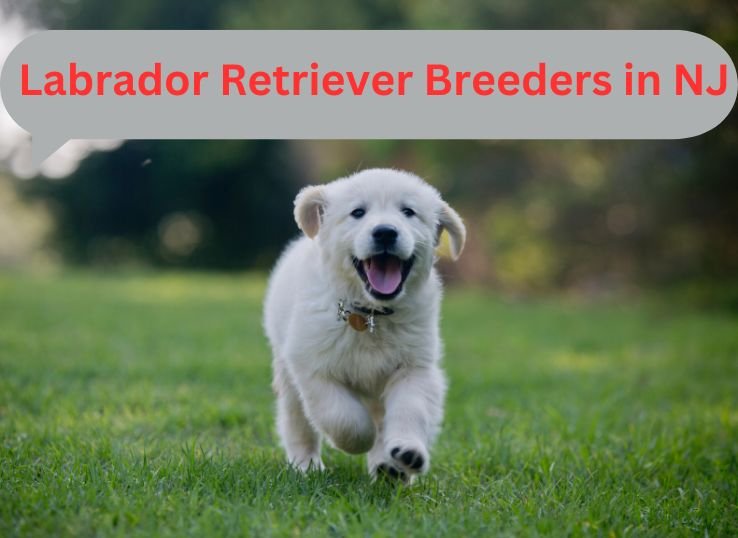Are Labrador retrievers hypoallergenic? A Complete Guide in 2025

Labrador Retrievers are one of the most prevalent dog breeds all over the world, recognized for their friendly nature, faithfulness, and intelligence. But for individuals with allergies, keeping a Labrador retriever might not be a great choice. Are Labrador retrievers hypoallergenic? No, Labrador Retrievers are not a hypoallergenic breed, and their shedding can cause issues for individuals with allergies.
Labrador Retrievers are recognized for their dense, double-coated fur, which can shed heavily during the year. This shedding can eliminate dander and additional allergens into the air, making it problematic for individuals with allergies to breathe. Although regular grooming as well as bathing can help to decrease shedding, it might not be sufficient for individuals with severe allergies.
Regardless of their shedding, numerous people with allergies still select to own Labrador Retrievers due to their friendly and faithful nature. However, it is significant to be aware of the possible risks and to take steps to control allergies if needed. By knowing the facts about Labrador Retrievers as well as allergies, individuals can make knowledgeable verdicts about whether this dog is right for them.
Table of Contents
What Are Hypoallergenic Dogs?
The term hypoallergenic is distinct as something “designed to decrease the likelihood of an allergic response.” Something discussed to as hypoallergenic is not essentially guaranteed not to aggravate allergies, only that it is more expected to reduce an allergic response.
Some individuals incorrectly accept that hypoallergenic means “a pooch that doesn’t shed.” It has less to do with their coat in most circumstances. Dog allergies in people are not typically triggered by the actual hair or coat of the dog. They’re generally a response to the dander, saliva, and dog urine.
The allergy signs you or somebody in your home might experience, like sneezing, itchy eyes, soggy eyes, runny nose, and skin rash, can arise from your immune system responding to the exposure caused by the dog.
Different individuals might have different allergic reactions to the same pooch, and not all canines will trigger a reaction in the same individual.
The size of the canine, the amount of close connection you have, and the level to which your pooch shares your space can impact how affected you can be by them.
There are no entirely guaranteed hypoallergenic canines as any dog can shed skin, urine, or saliva. However, some kinds of dogs, like Labrador Retrievers, do shed a lot of fur, more so than other dog breeds, and this can worsen the amount of dander an individual can be introduced to.
Thus, while no dog is hypoallergenic, and any pooch has the possibility of causing someone’s allergies, some types of dog breeds can shed less and perhaps be less likely to cause someone’s allergies. I am going to discuss that list of dog breeds in just a moment; however, let’s answer some more questions about this problem, “Are Labradors hypoallergenic?”
Are Labrador Retrievers Hypoallergenic?

All kinds of Labradors would fall within the same group, and would not be deliberated hypoallergenic dogs. Black Labradors are not hypoallergenic, and neither are yellow Labradors or chocolate Labradors. Color would not influence the Labrador being non-hypoallergenic; therefore, it won’t matter which Lab color you are considering in that detail.
Along with not being hypoallergenic, Labs are recognized for being unnecessary shedders. They have a double fur and can shed their basecoat heavily in the spring as well as fall. Labradors also shed during the year, and keeping up with handling their shedding is a common task for owners.
Causes of Dog Allergies
Unluckily, pet hair is what makes it difficult for people with allergies to live together with dogs. When hair is shed, allergens can reside in the air and on furniture for several years. When an individual with allergies meets this dander, it’s likely to annoy their eyes, nose, as well as throat.
But humans have been living together with dogs for thousands of years; thus, why are some persons allergic to dogs? It all comes down to the individual’s immune system, which fights against external substances.
A typical immune system holds no issue filtering out dander as well as allergens, even when canines shed a lot. But people with sensitive immune systems respond to proteins in a pet’s dander, urine, and saliva.
Common Signs of Dog Allergies
There are numerous symptoms of pet allergies, comprising:
- Sneezing
- Itchy eyes
- Nasal congestion
- Postnasal drip
- Cough
- Swollen face or facial pain
If you suffer from any of these symptoms once you’re around pets, then you must see your main care physician instantly. Even though pet-related allergies can’t be entirely cured, your doctor can aid in treating them so that they’re more controllable once you’re around pet dander.
What Other Dogs Might Be Good For Individuals with Allergies?
Since any pooch has the possibility of causing your allergies, what to do if you want to add a dog to your life? Although you could perhaps have an allergy to any dog’s dander, some dogs might be less possible to cause those allergy symptoms.
These pooches can be lower-shedding breeds, meaning that less of their coat will be coming off and found all over your home. In shedding less, these dogs might be less expected to also shed the dander that causes allergies.
So although they still have dander, saliva, or urine, you might be less introduced to them through this less shedding. Realize that you can still have allergies to any pooch and that each individual can have an exceptional immune response.
According to the American Kennel Club, here are dog breeds that might be worth seeing for someone worried about dog allergies:
- Afghan Hound
- American Hairless Terrier
- Irish Water Spaniel
- Kerry Blue Terrier
- Komondor
- Lagotto Romagnolo
- Maltese
- Mini Schnauzer
- Bedlington Terrier
- Bichon Frise
- Chinese Crested
- Coton de Tulear
- Giant Schnauzer
- Havanese
- Peruvian Inca Orchid
- Standard Schnauzer
- Xoloitzcuintli
- Yorkshire Terrier (Yorkie)
- Poodle
- Portugese Water Dog
- Puli
- Shih Tzu
- Soft-Coated Wheaten Terrier
- Spanish Water Dog
How Much Do Labrador Retrievers Shed?
Even though nearly all canines shed to some extent, labs shed greatly within two months of the year: spring and fall. Once the weather initiates to warm up, they shed their dense winter fur better to put up the hot temperatures in spring and summer.
After that, when it starts to become cold, Labs will bulk on their winter fur to be warm during even cold temperatures. Besides, in between these months, they also need frequent brushing as well as grooming.
How to Control Labrador Shedding?
Every owner of Labrador is familiar with the quantity of shedding that comes with keeping one, so much so that it can lead to the temptation to shave your dog. Luckily, there are additional ways to control your dog shedding so that there is less dander moving around the house.
1. Lukewarm Baths
You only need to bathe your dog with lukewarm water after one every month. However, bathing your dog more frequently in the shedding seasons will aid in washing out dander, loose fur, and allergens.
Along with shampoo as well as regular brushing, lukewarm baths are a great way to decrease the quantity of Labrador shedding as well as allergens in your house.
2. Change in Diet
Occasionally dogs shed exceptionally when their dietary requirements aren’t being met. Try to get familiar with the top few constituents in your lab’s food and identify whole constituents, like meat as well as vegetables.
Above, ensuring that your dog is getting sufficient vitamins, minerals, as well as nutrients can help you get a healthy coat. Using a better supplement might also help retain your lab’s fur healthy.
3. Daily Brushing
If you have to select between vacuuming the house numerous times and brushing your dog’s coat every day, you’d perhaps pick brushing. And that’s a great thing, as well: Labs benefit from regular brushing to help retain their hair neat, healthy, as well as free of debris. Moreover, routine brushing decreases the need to vacuum often.
Alternative Hypoallergenic Dog Breeds
Although Labrador Retrievers are not hypoallergenic, several breeds are more appropriate for people with allergies. Some alternative hypoallergenic breeds include:
1. Poodles and Labradoodles
Poodles and Labradoodles are frequently suggested for people with allergies because of their low-shedding furs. Poodles have 3 sizes: Standard, Miniature, as well as Toy, and they hold curly hair that doesn’t shed a lot. Labradoodles are a cross of a Poodle as well as a Labrador Retriever, and these dogs also have curly coats.
2. Terrier Breeds
Terriers are also an excellent option for individuals with allergies as they have wiry, low-shedding furs. Breeds such as the Bichon Frise, Bedlington Terrier, as well as Kerry Blue Terrier are all hypoallergenic breeds and have hair that grows constantly, rather than shedding.
3. Hairless Breeds
Hairless breeds such as the Chinese Crested, American Hairless Terrier, as well as Peruvian Inca Orchid are also excellent for individuals with allergies as they don’t shed. These dogs do require steady grooming to retain their skin healthy; however, they are a good choice for individuals who are allergic to dog hair.
Generally, although there are no entirely hypoallergenic dog breeds, there are several breeds that are better suitable for people with allergies. It’s significant to do an investigation and spend time with different dog breeds to govern which one is the right fit for you.
FAQs
Are Labrador retrievers sensitive?
Labradors are laid-back, rewarding dogs with high energy levels, which means they love additional attention as well as exercise. They make outstanding companions, and assistance dogs because of their sensitive and loving nature.
Are golden retriever dogs hypoallergenic?
No. The golden retriever sheds a reasonable amount, thus it is a non-hypoallergenic dog.
Conclusion
A Labrador makes a delightful pet; thus, when allergy sufferers are seeking to add one to their families, it is best to ask, “Are Labrador retrievers hypoallergenic?” If you experience pet-related allergies, then accepting a Labrador Retriever might not be an excellent idea. Due to their thick, double fur and consistent shedding habits, these canines create allergens that might cause a reaction.
Even if a Labrador is not the right option for you, you don’t need to lose all hope: Based on how severe your allergies are, you can own a canine without issue if you select to adopt a hypoallergenic breed. Even though hypoallergenic means a pooch still carries some quantity of hair, your allergic response to the dander will be less severe. Better yet, your allergies might not even arise at all.






